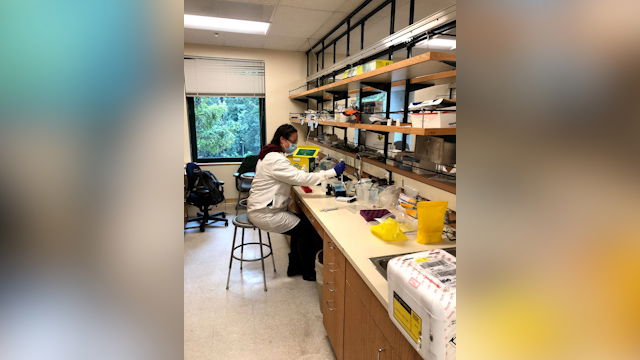UCSC scientists are creating a COVID-19 rapid testing lab

SANTA CRUZ, Calif. (KION) The University of California Santa Cruz has a world class team of molecular biologists and genomics experts. Now a team of scientists are using those skills to create a testing lab that aims to have COVID-19 results in 24 hours.
“We’re really focused on setting up a facility at UC Santa Cruz that’s highly automated with ultimately the testing capacity to provide results. Our target is within 24 hours of receipt of samples,” professor of chemistry and biochemistry Michael Stone said.
Currently, all Santa Cruz county tests are processed in Santa Clara county or by private labs. However, in three to six weeks UCSC scientists predict they'll have a lab federally approved and ready for Santa Cruz county residents.
“If this testing capacity is ramped up, we can switch strategies where we actually chase down active cases and focus our quarantine on those individuals that could actually be infected,” professor of ecology and evolutionary biology who studies infectious disease Marm Kilpatrick said.
As of April 7, there have been less than 900 tests administered to Santa Cruz county residents.
The scientists estimate they’ll be able to push out at least 1,000 test results a week once the lab is approved and open. People will be swabbed and tested at the on-campus health center. The testing will be focused on high risk professionals such as medical workers, first responders, cashiers and food delivery workers.
“We can start to find cases with active surveillance instead of just doing passive surveillance, where we wait for patients to come to hospitals,” Kilpatrick said.
Staff and resources will be the next challenge the team could face, but they're receiving a lot of support from others at UCSC.
“Labs on campus have been stepping up to offer things like 3D printing swabs and 3D personal protective equipment,” professor of molecular biology Jeremy Sanford said.
Before the testing is federally approved, the scientists will need volunteers to be tested for research purposes.

